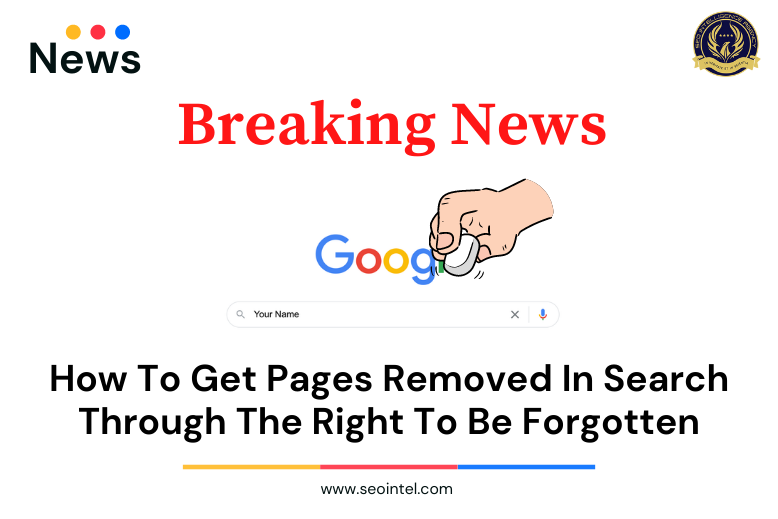
In May 2014, the European Union established the “right to be forgotten”, which is a data protection law that gives individuals in the European Union the right to ask search engines like Google, to delist certain search results for queries related to a person’s name. Some countries outside the European Union have adopted similar laws as well such as Russia, Turkey, and Serbia.
Google has released a video that details how to request content removal in search under the right to be forgotten. It explains the right to be forgotten and the process of submitting a request for Google search.
Anyone covered by the right to be forgotten can apply for a delisting of content in the search results. Corporations and other legal entities, however, are not covered by the rights. The right only applies to personal data relating to individuals and only search queries relating to a person’s name.
There are four main criteria considered when analyzing a right to be forgotten request. The information published must be inaccurate, inadequate, irrelevant, or excessive, and whether there is a public interest in the information remaining in the search results. This means that the person’s role in public life is also considered.
As for the decision-making process, professional reviewers manually review the removal requests. The reviewer considers whether the information may be in the public interest and weigh it against the requester’s rights under the applicable data protection law.
Factors such as the requester’s role in public life, where the information comes from, how old the content is, the effect on Google’s users, the truthfulness or falsehood of the information, and the sensitivity of the data are also considered.
Note that only queries related to the name are delisted from the search results. Other queries may still be able to show the content.
Also, the removal request only removes it from the search results and the information may still show up on the webpage where the content is published.
If you are covered by the right to be forgotten and have some content that you would prefer to be delisted in searches for your name, the explainer video and resources are a must-watch on the whole process.
Other than that, it is also quite an interesting topic to read through and watch and I recommend checking it out, even if you are not covered by it.
Watch the video here: